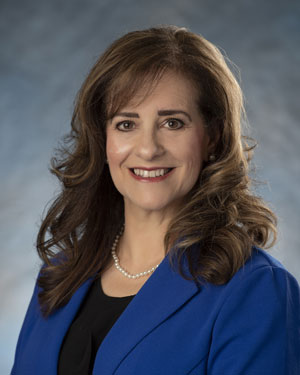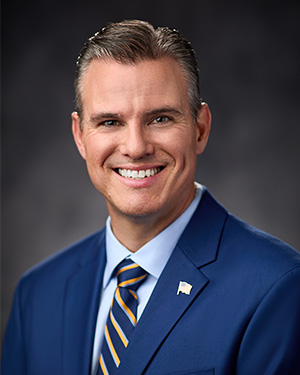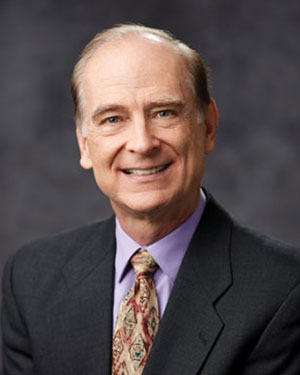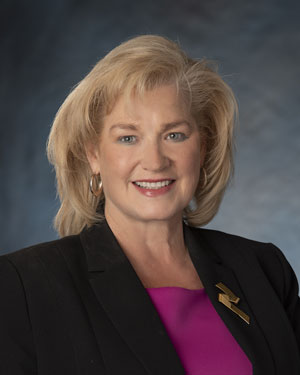Mayor & City Council
The City Council, comprised of the Mayor and four City Councilmembers, is the governing body of the city, with all the regulatory and corporate powers of a municipal corporation provided under California State Law. In general, the Council supervises the operations of the City government by establishing policies and programs and appropriating funds for each service function.
Pleasanton has a district-based election system, each district has one Councilmember who resides in the district and who is just chosen by the electors residing in that district. The office of Mayor remains elected at-large by all voters. Councilmembers are elected for a term of four-years and the Mayor is elected to a term of two-years. A Vice Mayor is selected by the Mayor each calendar year. The Mayor and Council are subject to term limits of eight years.
Not sure what district you are in? Click here.
The City Council holds regular meetings on the first and third Tuesdays of each month at 7:00 p.m., in the City Council Chamber at 200 Old Bernal Avenue. Council meetings are open to the public and your comments are always welcome.
Meetings
City Council Agenda
City Council regular meetings are held at 7 p.m. on the first and third Tuesdays of each month.
Location:
City Council Chamber
200 Old Bernal Avenue
FAQs
Can I participate in City Council Meetings?
The Mayor and City Council encourage citizen input. Time is reserved during each regular meeting for the public to address the City Council on any matter. In addition, the Mayor generally allows public input on any item listed on the agenda, prior to the Council making a decision on that item.
Anyone wanting to speak at a meeting should fill out a speaker card, found at the information table near the entrance.
What are the components of the City Council Agenda
Consent Calendar: Matters considered routine and are acted upon in one motion. This section of the agenda does not require the discussion of individual items unless requested by a member of the Council or the public.
Meeting Open to the Public: Time when anyone in the audience can address the Council about matters that are not on the agenda. Speakers are limited to three minutes and should submit a speaker card to the City Clerk. Because it is not legal for the Council to discuss matters not on the agenda, any issue brought up under this section of the agenda will typically be referred to staff and may return to the Council as a regular item on a future agenda.
Public Hearings: Those who wish to speak on matters set for public hearing will be heard when the Mayor calls for comments from the audience in support of or opposition to an issue. After all interested parties have spoken, the hearing will be closed and the matter will be discussed and acted upon by the Council.
Matters Initiated by Council: Issues related to Council projects or priorities are handled in this section of the agenda. Typically, items appearing in this section are reviewed and discussed by the Council, followed by appropriate action.
What is a City Council Workshop?
What is a City Council Closed Session?
What is a Quorum?
What is a Resolution?
What is a Referral?
What is an Ordinance?
An ordinance is a local law adopted by legislative action of the City Council. It requires two readings at separate Council meetings and becomes effective 30 days after the Council approves the second reading.
What is a Motion?
Statements of Economic Interests (Form 700)
Members of the City Council and certain appointed officers identified in Government Code Section 87200 are required to file statements of economic interests (Form 700) with the City Clerk. Copies of the statements filed by the following may be obtained by visiting the offices of the Fair Political Practices Commission (FPPC) or the City Clerk. The Office of the City Clerk is located at 123 Main Street, California 94566. The FPPC is located at 1102 Q Street, Suite 3000, Sacramento, California 95811. Statements of economic interests may be available in electronic format on the FPPC Website www.fppc.ca.gov.
Filers: Mayor Karla Brown, Councilmember Valerie Arkin, Councilmember Jack Balch, Councilmember Jeff Nibert, Councilmember Julie Testa, City Manager Gerry Beaudin, City Attorney Daniel Sodergren, Finance Director Susan Hsieh, Planning Commissioner Brandon Pace, Planning Commissioner Matthew Gaidos, Planning Commissioner Ken Morgan, Planning Commissioner Vivek Mohan, Planning Commission alternate member Anurag Jain.
Administration Hours
Mayor & City Council
Mailing Address
City of Pleasanton
PO Box 520
Pleasanton, CA 94566
Monday – Friday, 8:00 a.m. – 5:00 p.m.
Phone: (925) 931-5001
Contact us by filling out the form below:





